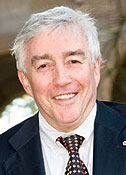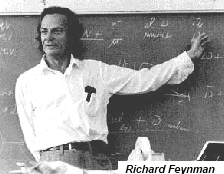|
|
|
|
|
|
|
News & Views item - May 2011 |
![]() Chair of the Group of Eight to Tell Government "Quality is Not Some Minimum
Standard Set by a Group Such as the TEQSA". (May 3, 2011)
Chair of the Group of Eight to Tell Government "Quality is Not Some Minimum
Standard Set by a Group Such as the TEQSA". (May 3, 2011)
The current chair of the Group of Eight is Professor Paul Greenfield, vice-chancellor, president of The University of Queensland. Tomorrow (May 4) Professor Greenfield is to front the National Press Club and use his address to inform the federal government to: "Think global or risk disappointment."
According to the Go8's media release Professor Greenfield is to make the case that a defining issue for the future of Australia's universities is how to earn and maintain respect in an increasingly tough global marketplace, in short, how best to sell the product internationally so that the sector earns the maximum foreign exchange.
As Professor Greenfield sees it:
 Learning
in Australia's higher education system should be of international quality. If we
are not prepared to fund it sufficiently then we should not claim it to be what
it is not. The Government's current policy is to produce more graduates at lower
costs per student but the result will be a further blow-out in student staff
ratios leading to less intensive student interaction with teachers and a lower
quality learning experience.
Learning
in Australia's higher education system should be of international quality. If we
are not prepared to fund it sufficiently then we should not claim it to be what
it is not. The Government's current policy is to produce more graduates at lower
costs per student but the result will be a further blow-out in student staff
ratios leading to less intensive student interaction with teachers and a lower
quality learning experience.
The overall student staff ratio in Australian universities has risen from 12 to 1 in the mid-1990s to 20 to 1 today.
At an international level we are 'off the pace' in teaching and learning.
Quality is not some minimum standard set by a group such as the Tertiary Education Quality Standards Agency (TEQSA) - important though that may be - but must be measured against international benchmarks.
The government's new research rating system, ERA, at least attempts to compare university research on international standards, but there is no similar angle for learning and teaching in TEQSA.
To continue to be a major economic earner for the country Australian higher education must obsess about being internationally competitive and cannot rely on any inherent comparative advantage.
But contrast that pecuniary importance with the clear implication emphasised by
the 1965 Physics Nobel Laureate cited for his -- fundamental work in quantum
electrodynamics, with deep-ploughing consequences for the physics of elementary particles -- Richard Feynman,
who told fellow academic "Hay, Hans! [1967 physics Nobel Laureate twelve years
Feynman's senior] I noticed something interesting. Here the plate goes around so
and the reason it's two to one is ..." He says, "Feynman, that's pretty
interesting, but what's the importance of it? Why are you doing it?"
consequences for the physics of elementary particles -- Richard Feynman,
who told fellow academic "Hay, Hans! [1967 physics Nobel Laureate twelve years
Feynman's senior] I noticed something interesting. Here the plate goes around so
and the reason it's two to one is ..." He says, "Feynman, that's pretty
interesting, but what's the importance of it? Why are you doing it?"
Bob Wilson [Robert Wilson, later to become the first director of
Fermilab], who was head of the laboratory there at Cornell, called me in to
see him. He said, in a serious tone, "Feynman, you're teaching your classes
well; you're doing a good job, and we're very satisfied. Any other expectations
we might have are a matter of luck. When we hire a professor, we're taking all
the risks. If it comes out good, all right. If it doesn't, too bad. But you
shouldn't worry about what you're doing or not doing." He said it much better
than that, and it released me from the feeling of guilt.
Then I had another thought: Physics disgusts me a little bit now, but I used to
enjoy doing physics. Why did I enjoy it? I used to play with it. I used to do
whatever I felt like doing -- it didn't have to do with whether it was important
for the development of nuclear physics, but whether it was interesting and
amusing for me to play with. When I was in high school, I'd see water running
out of a faucet growing narrower, and wonder if I could figure out what
determines that curve. I found it was rather easy to do. I didn't have to do it;
it wasn't important for the future of science; somebody else had already done
it. That didn't make any difference : I'd invent things and play with things for
my own entertainment.
So I got this new attitude. Now that I am burned out and I'll never accomplish
anything, I've got this nice position at the university teaching classes which I
rather enjoy, and just like I read the Arabian Nights for pleasure, I'm going to
play with physics, whenever I want to, without worrying about any importance
whatsoever.
Within a week I was in the cafeteria and some guy, fooling around, throws a
plate in the air. As the plate went up in the air, I saw it wobble, and I
noticed the red medallion of Cornell on the plate going around. It was pretty
obvious to me that the medallion went around faster than the wobbling.
I had nothing to do, so I start to figure out the motion of the rotating plate.
I discover that when the angle is very slight, the medallion rotates twice as
fast as the wobble rate -- two to one. It came out of a complicated equation!
Then I thought, "Is there some way I can see in a more fundamental way, by
looking at the forces or the dynamics, why it's two to one?"
I don't remember how I did it, but I ultimately worked out what the motion of
the mass particles is, and how all the accelerations balance to make it come out
two to one.
I still remember going to Hans Bethe [1967 physics Nobel Laureate twelve years
Feynman's senior] and saying, "Hay, Hans! I noticed something interesting. Here
the plate goes around so and the reason it's two to one is ..." and I showed him
the accelerations.
He says, "Feynman, that's pretty interesting, but what's the importance of it?
Why are you doing it?"
"Hah!" I say. "There's no importance whatsoever. I'm just doing it for the fun
of it." His reaction didn't discourage me; I had made up my mind I was going to
enjoy physics and do whatever I liked.
I went on to work out equations of wobbles. Then I thought about how electron
orbits start to move in relativity. Then there's the Dirac Equation [Paul Dirac,
1933 physics Nobel Laureate] in electrodynamics. And then the quantum
electrodynamics. And before I knew it (it was a very short time) I was "playing"
-- working, really -- with the same old problem that I loved so much, that I
stopped working on when I went to Los Alamos: my thesis-type problems [at
Princeton]; all those old-fashioned, wonderful things.
It was effortless. It was easy to play with these things. It was like uncorking
a bottle: Everything flowed out effortlessly. I almost tried to resist it! There
was no importance to what I was doing, but ultimately there was. The diagrams
[Feynman diagrams] and the whole business that I got the Nobel Prize for came
from that piddling around with the wobbling plate.
__________________________________________________________
Surely You're Joking, Mr. Feynman. R. P. Feynman and R. Leighton, Unwin Paperbacks, 1985. ISBN 0-04-530023-2